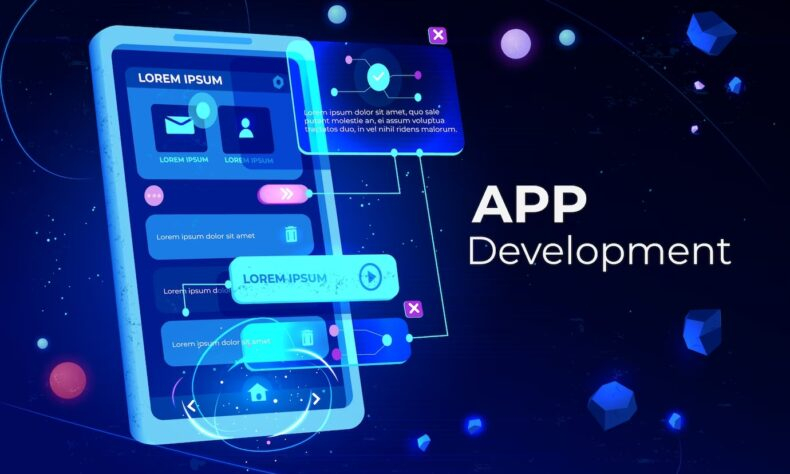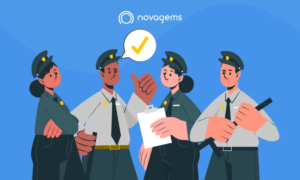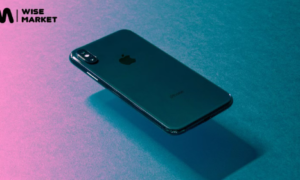
Introduction
In today’s fast-paced digital world, food apps have become an indispensable tool for both consumers and businesses in the food industry. Whether you’re a restaurant owner looking to expand your reach or an entrepreneur with a passion for culinary innovation, creating a food app can be a recipe for success. However, embarking on this journey requires careful planning, technical expertise, and the support of a reliable App Development Agency London. In this comprehensive guide, we will explore how to create a food app and the valuable role an app development agency in London can play in turning your culinary dreams into reality.
The Appetizer: Understanding the Food App Landscape
Before diving into the app development process, it’s crucial to have a clear understanding of the food app landscape. Food apps come in various forms, catering to different niches within the culinary world. Here are some popular categories:
1. Restaurant Discovery Apps
Helping users discover nearby restaurants, read reviews, and make reservations.
2. Food Delivery Apps
Enabling users to order food from their favourite restaurants and have it delivered to their doorstep.
3. Recipe and Cooking Apps
Providing users with a collection of recipes, cooking tips, and instructional videos.
4. Meal Planning Apps
Assisting users in planning their meals, creating shopping lists, and tracking their nutritional intake.
The Main Course: How to Create a Food App
1. Identify the Goals and Target Market for Your App
Begin by identifying the specific purpose of your food app. Are you aiming to connect users with local restaurants, facilitate food delivery, or provide a platform for culinary enthusiasts to share recipes? Understanding your app’s purpose will help you define your target audience.
2. Market Research and Competitive Analysis
Conduct in-depth market research to find your rivals and market gaps. Analyze successful food apps to learn from their strategies and user experiences.
3. Design a User-Friendly Interface
User experience is paramount in the food app industry. Collaborate with a professional app designer to create an intuitive and visually appealing interface that enhances user engagement.
4. App Development
This is where an app development agency in London comes into play. Partner with a reputable agency with expertise in mobile app development. They will use the latest technologies to bring your app concept to life, ensuring it runs smoothly on various devices and platforms.
5. Features and Functionality
Decide on the essential features for your app, such as user profiles, restaurant listings, menu browsing, order placement, and secure payment options. Additionally, consider incorporating features that make your app stand out, such as food recommendations, loyalty programs, or real-time delivery tracking.
6. Testing and Quality Assurance
Test your app thoroughly to find any bugs or problems and fix them. Conduct usability testing to ensure that users find the app easy to navigate and use.
7. Launch and Marketing
Once your app is polished and ready, it’s time for a grand launch. Develop a marketing strategy to promote your app, including social media campaigns, influencer partnerships, and email marketing.
8. User Feedback and Continuous Improvement
Listen to user feedback and continuously improve your app based on their suggestions and needs. An app is a dynamic product that should evolve to meet changing user expectations.
The Dessert: The Role of an App Development Agency in London
Partnering with an app development agency in London can be a game-changer for your food app project. Here’s how they can contribute to your app’s success:
1. Technical Expertise
App development agencies in London have a team of experienced developers who are well-versed in the latest technologies and trends. They can ensure that your app is built to the highest technical standards.
2. Customization
These agencies can tailor your app to your specific requirements, ensuring that it aligns perfectly with your vision.
3. Cost-Effective Solutions
Outsourcing app development to London agencies can be cost-effective, as they often have competitive pricing models and can deliver high-quality results within your budget.
4. Timely Delivery
App development agencies are accustomed to working within strict timelines. They can help you launch your app quickly, giving you a competitive edge in the market.
5. Post-launch Support
Beyond development, agencies provide ongoing support, maintenance, and updates to keep your app running smoothly.
The Side Dish: Monetizing Your Food App
After investing time, effort, and resources into creating your food app, it’s essential to consider how you’ll generate a return on your investment. Here’s how you can monetize your food app:
In-app Ads: Displaying advertisements within your app can provide a steady revenue stream. Partner with brands or other apps that align with your target audience for maximum impact.
Subscription Models: For specialized features or premium content, consider offering a subscription-based model. This can include ad-free experiences, exclusive recipes, or advanced meal planning tools.
Affiliate Marketing: Collaborate with restaurants, food suppliers, or kitchen equipment brands. Earn commissions by promoting their products or services within your app.
Sponsored Content: Allow food bloggers, chefs, or brands to publish sponsored articles, recipes, or videos on your platform for a fee.
In-app Purchases: Offer additional features or content that users can buy, such as exclusive recipes, advanced nutritional trackers, or custom meal plans.
Loyalty Programs: Collaborate with local eateries or food-related businesses to provide special offers or discounts to your app users, earning a commission for every redemption.
Safety First: Ensuring Data Protection and Security
In an era where data breaches are prevalent, ensuring the security and privacy of your users is paramount.
Data Encryption: Partner with your App Development Agency in London to ensure that all user data is encrypted. This prevents unauthorized access to sensitive information.
Regular Updates: Ensure that the app is regularly updated to protect against new threats or vulnerabilities.
Compliance with GDPR: If your app targets users in the European Union, ensure that it complies with the General Data Protection Regulation (GDPR). Seek advice from legal professionals knowledgeable in this area.
Secure Payment Gateways: If your app facilitates payments, ensure that it integrates with reputable payment gateways that offer end-to-end encryption.
Toasting to Success: Engaging with Your Audience Post-Launch
The launch is just the beginning. Engaging with your audience post-launch is crucial for retaining users and achieving long-term success.
Social Media Engagement: Maintain active profiles on social media platforms relevant to your audience. Share updates, run contests, and engage with user-generated content.
Newsletters: Regularly update your users with new features, recipes, or partnerships through email newsletters.
User Surveys: Periodically run surveys to gather feedback and understand the evolving needs and preferences of your audience.
Events and Collaborations: Host virtual or physical events like cooking workshops, webinars, or food festivals to engage with your community.
Conclusion
Creating a food app is a tantalizing venture that can satisfy the appetites of both foodies and entrepreneurs alike. By following the steps outlined in this guide and enlisting the expertise of a Mobile App Development Agency London, you can bring your culinary vision to life and carve out a delectable slice of success in the ever-evolving world of food apps. So, roll up your sleeves, put on your chef’s hat, and start planning your journey towards culinary app greatness.





